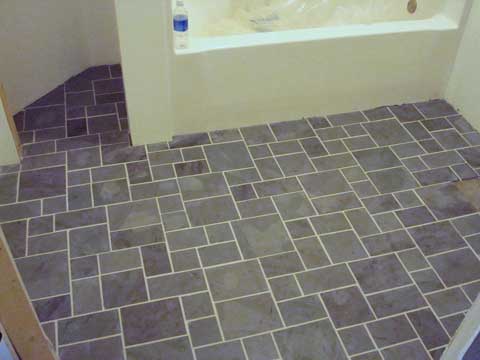The Advantages of Porcelain Tiles
Porcelain tiles are a form of ceramic tile made in a single manufacturing process to produce an extremely hard-wearing tile. Unlike traditional ceramic tiles that are fired in the kiln initially to produce the tile and then fired a second time to add the glaze which contains the colour and pattern, porcelain tiles have the pattern and colour running right through them due to the single step method of production.
So the first advantage is this full bodied effect – it means that if the tile chips, the damage is less noticeable because the same colour and pattern exist underneath the chip. So installing porcelain tiles is a great home improvement that will add long-lasting style to your home but even if you are thinking of moving house they will also add value to the property you are selling.
But, this brings us on to the second advantage – porcelain tiles are so hard that the chances of them chipping are very unlikely unless they are subjected to extreme force.
They are also extremely water-resistant so suitable for any room where there will frequently be a high moisture content, including full wet rooms.
Porcelain tiles are produced in a wide variety of colours, patterns and textures in styles that range from the ultra-contemporary to more traditional. They are also made in very realistic natural stone effects.
Yet another advantage is that they need very little maintenance, unlike natural stone tiles, simply an occasional wash to remove any dust and dirt.
I started off thinking I would give this post the title “The Advantages and Disadvantages of Porcelain Tiles” but I found that I was struggling to find any disadvantages so I have ended up just discussing the advantages. But if you can think of any disadvantages then please do let us know…





Recent Comments